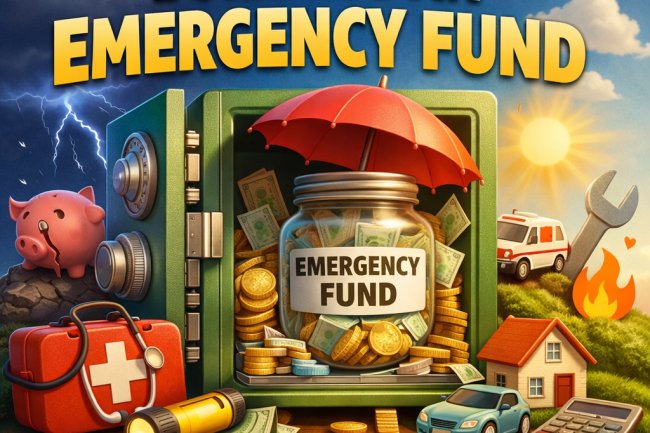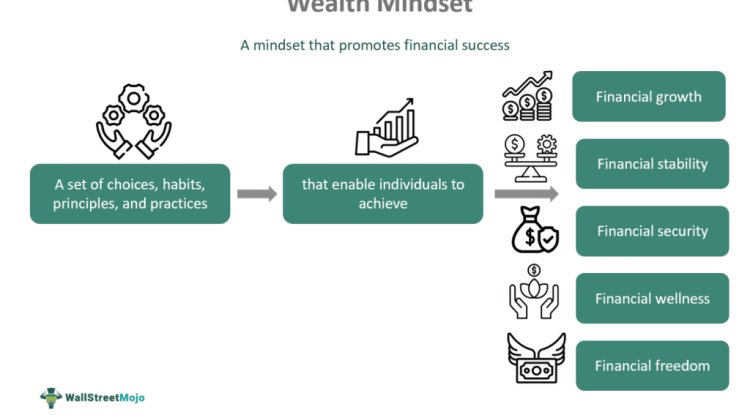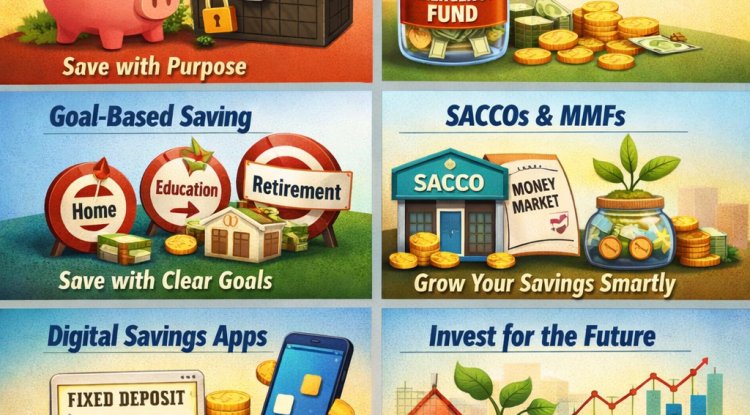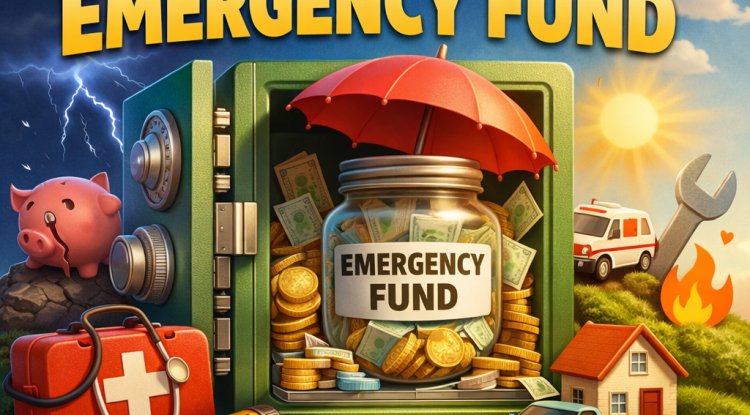Mastering Financial Planning: The Roadmap to Wealth and Security
Learn the 6 key pillars of financial planning — budgeting, emergency funds, debt management, investing, retirement, and insurance. Discover how to secure your financial future and build wealth with smart money strategies.
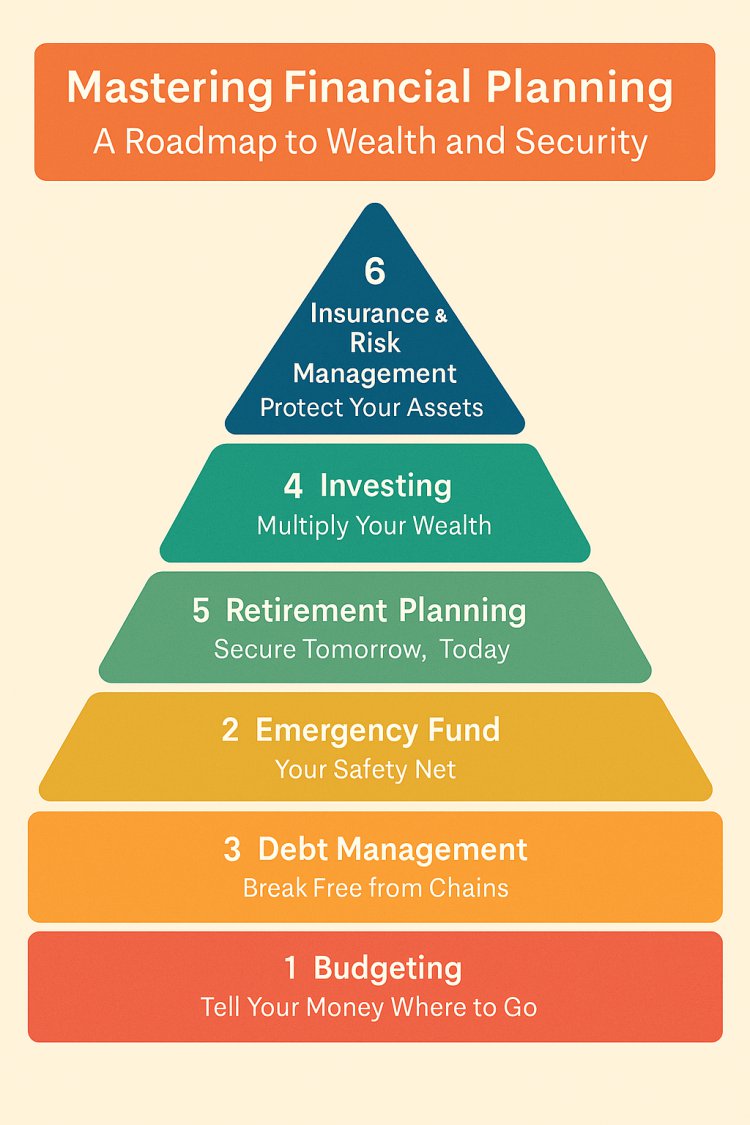
Financial planning is not just about budgeting—it’s about creating a roadmap that aligns your money with your goals, dreams, and values. Whether you are a young professional in Nairobi, a business owner in Lagos, or a career builder in New York, financial planning is the bridge between where you are and where you want to be.
Why Financial Planning Matters
Money left unmanaged slips away easily. Without a plan:
-
Expenses expand with income.
-
Debt piles up faster than savings.
-
Opportunities for investment are missed.
With a plan:
-
You have clarity about where your money goes.
-
You gain confidence in making financial decisions.
-
You build consistency in saving, investing, and growing wealth.
Financial planning is not about being rich first—it’s about learning to use what you already earn wisely so that it multiplies.
The Core Pillars of Financial Planning
1. Budgeting: Tell Your Money Where to Go
A budget is the backbone of any financial plan. Use proven systems like
-
50/30/20 Rule—50% needs, 30% wants, 20% savings/investing.
-
70/20/10 Rule – Spend 70%, invest 20%, and give 10%.
Practical tip: Automate your savings first (“pay yourself first”) before spending.
2. Emergency Fund: Your Safety Net
Life is unpredictable. Job loss, medical bills, or unexpected repairs can derail finances. Build an emergency fund covering 3–6 months of living expenses.
In Kenya, Money Market Funds (MMFs) like CIC, Sanlam, or Britam are excellent vehicles to park emergency savings while earning interest.
3. Debt Management: Break Free from Chains
Not all debt is equal.
-
Bad debt: credit cards, payday loans, and consumer loans (avoid these).
-
Good debt: mortgages, business loans (when generating income).
Strategy:
-
Use the Debt Snowball (pay smallest debt first). or
-
Debt Avalanche (pay highest interest debt first).
4. Investing: Multiply Your Wealth
Wealth is not built by saving alone. Investing is how money works for you.
Opportunities include:
-
Stocks & ETFs (e.g., Safaricom shares in Nairobi Securities Exchange, S&P 500 ETFs globally).
-
SACCOs (savings and credit cooperatives in Africa).
-
Real Estate & REITs.
-
Digital Businesses (online stores, content monetization, tech startups).
Tip: Start small but stay consistent—investing $100 monthly can grow into millions over decades.
5. Retirement Planning: Secure Tomorrow, Today
Follow the 25X Rule: Save 25 times your annual expenses to retire comfortably.
Example: If you need $20,000 per year, aim for a $500,000 retirement fund.
Start early with pension funds, retirement savings accounts, or long-term index investing.
6. Insurance & Risk Management
Protect your assets and family. Key covers include:
-
Health insurance
-
Life insurance
-
Business or property insurance
Insurance doesn’t grow wealth, but it protects it.
Action Plan: Turning Goals into Reality
-
Set Clear Goals – short-term (buying a car), medium-term (buying a home), long-term (retirement).
-
Track and Adjust – review finances monthly or quarterly.
-
Stay Educated – read finance books, follow financial educators, and keep learning.
-
Get Professional Help—a financial advisor or coach can accelerate your journey.
Infographic Ideas for Your Blog
-
A Financial Planning Pyramid (Budget → Emergency Fund → Debt → Investing → Retirement).
-
A Flowchart of the 6 Pillars.
-
A Comparison chart: “Without a Plan vs. With a Plan.”
-
African-specific visual: SACCOs, MMFs, and local banks vs. Global investments.
Conclusion
Financial planning is not about being perfect — it’s about being intentional. Every shilling, dollar, or naira you earn should have a purpose. By budgeting, building an emergency fund, managing debt, investing, and protecting your assets, you create freedom, not just money.
The earlier you start, the brighter your financial future.
What's Your Reaction?







